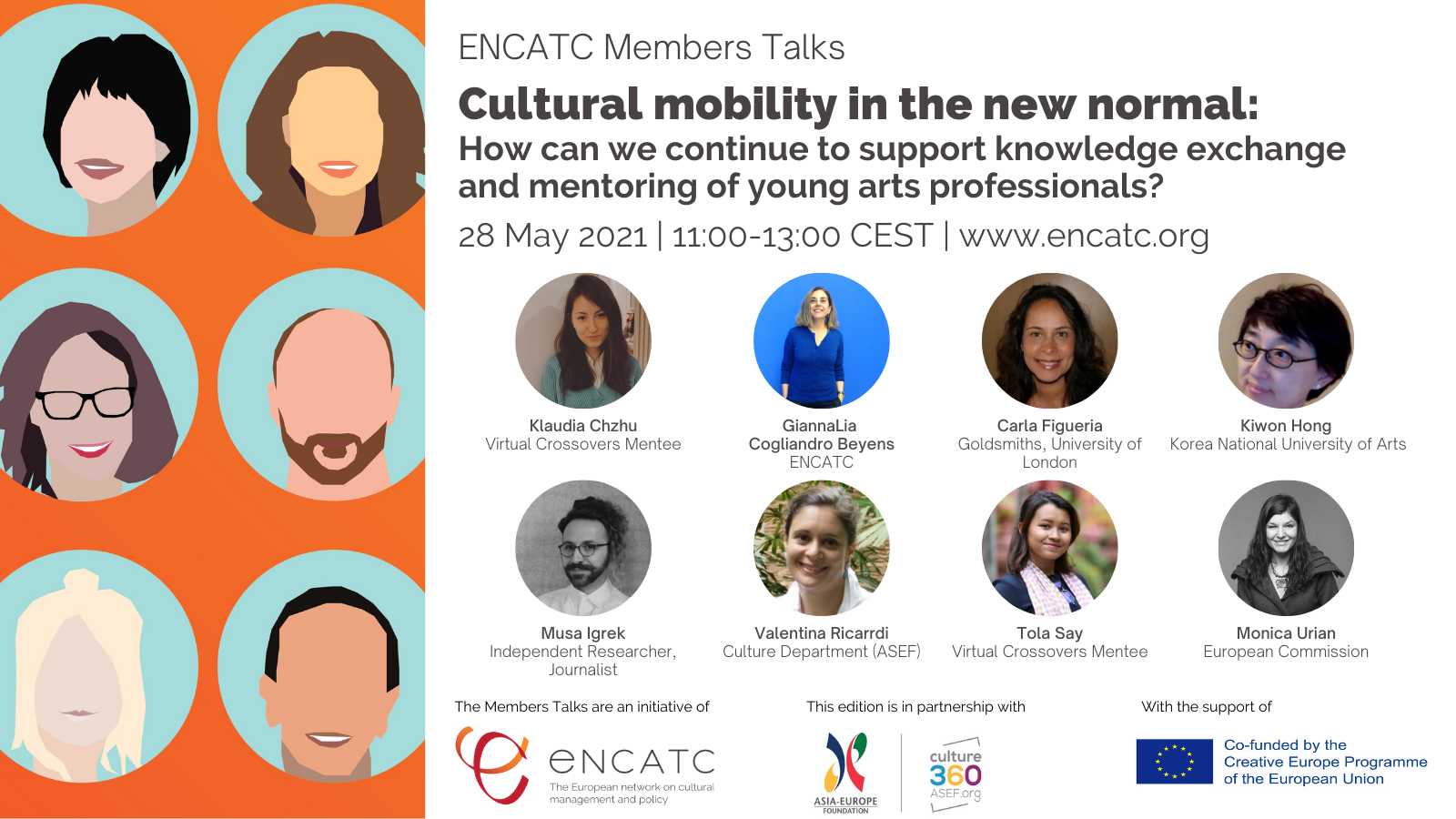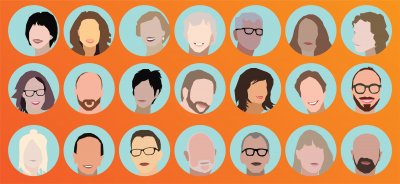On 28 May 2021, ENCATC (the European network on cultural management and policy) along together with ASEF (the Asia-Europe Foundation), organize an online talk entitled Cultural mobility in the new normal: how can we support knowledge exchange and mentoring of young arts professionals?”.
As part of the virtual residency for arts journalist Virtual Crossovers that has been held from 1 April – 1 May 2021, this talk presented many ways to support knowledge exchange and capacity building for young art professionals in times of restricted mobility, like the pandemic Covid 19 period.
The physical distancing has challenged art stakeholders, like artists, curators, arts journalists, and arts managers to discover new and innovative ways to run projects that are accessible online. In this talk, organizers, mentors, and selected arts journalists share their own experiences in bridging the exchange of knowledge and culture in the pandemic era.

Cultural mobility Poster. https://culture360.asef.org
In this talk, Monica Urian, the Programme Manager at the European Commission – Directorate General Education and Culture, shared European Union (EU)’s project, called The Global Cultural Relations Programme (GCRP), that aims to develop cultural practitioners’ skills and support their engagement in global cultural relations. This program is realized in peer-to-peer learning, cross-cultural collaboration, and global networking. EU also participated in some international cultural events, such as Jaipur Literature Festival, The Eco-Art Festival named “Nogoonbaatar” in Mongolia, and The Festival Colomboscope: On Language and Multitudinal Belonging in Sri Langka.
Valentina Riccardi, Associate Director at Asia-Europe Foundation (ASEF) presents virtual residency as one of ASEF’s regular activities. She argued that virtual residency can be a new model of exchange and learning. In e-residency, like Virtual Crossovers, participants are involved in individual residency with intensive training from their mentors. This virtual residency has many advantages, like reduce carbon footprints, costs, and health-risk, has flexible time, and increase the possibility to create cross-country collaborations.
The two selected journalists, Tola Say from Cambodia and Klaudia Chzhu from the Russian Federation also share their valuable experiences during the Virtual Crossovers e-residency.
Finally, this talk gives opportunities to young art professionals to share their perspectives on creating a new way to organize a cultural event during the pandemic time. For me, as participants in this talk, it is a pleasure to hear various stories about undertaking art projects in a time of restricted mobility from all over the world.

